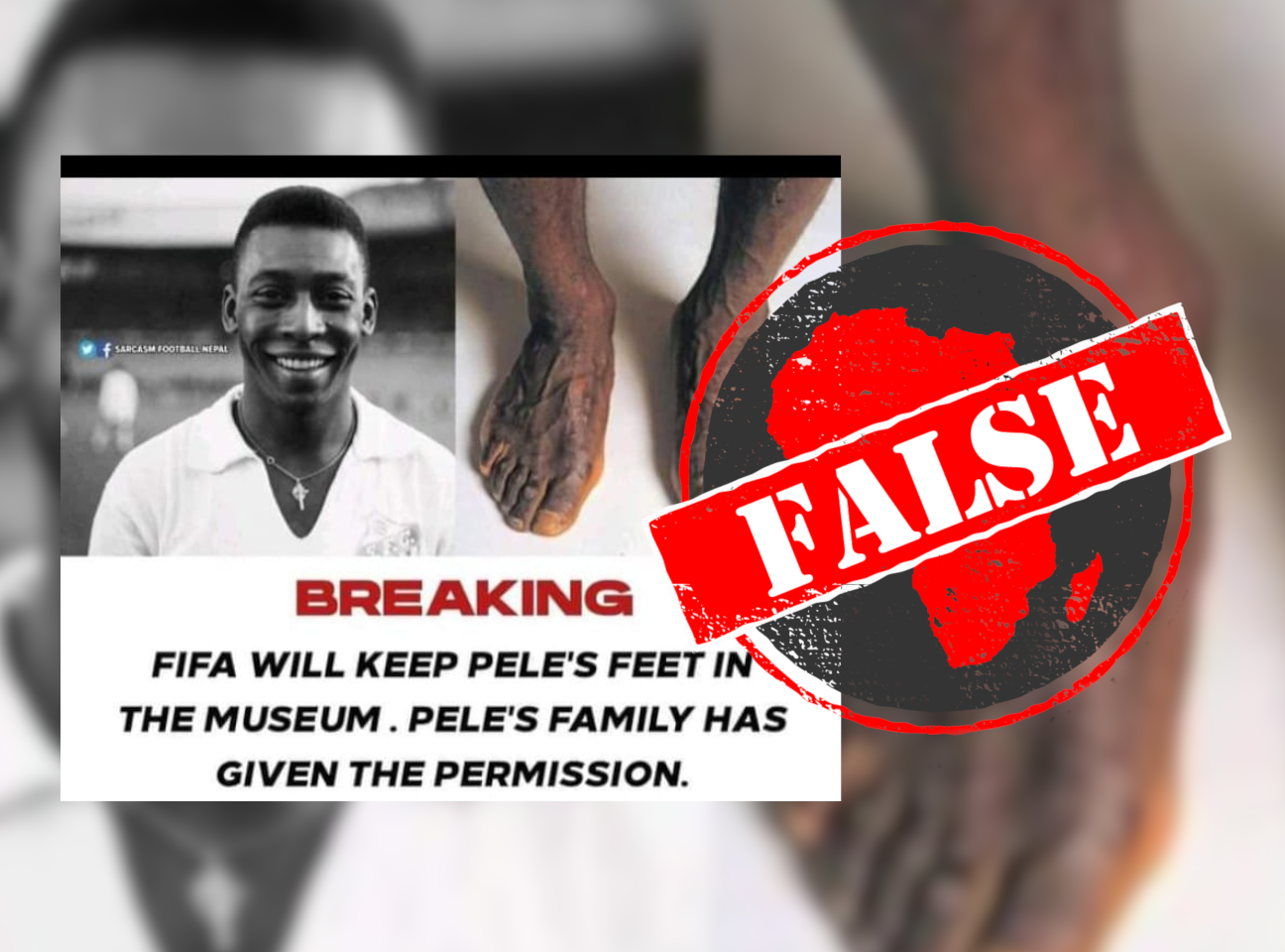IN SHORT: Pelé, the Brazilian footballer considered by many the greatest of all time, died on 29 December 2022 at the age of 82. But despite persistent rumours on social media, there is no evidence that Fifa asked to keep the dead man’s feet.
Pelé, the Brazilian soccer player known for his many victories, and considered by many as the greatest of all time, died on 29 December 2022.
Edson Arantes do Nascimento, as he was born, was declared an “official national treasure” by the Brazilian government in 1961 and still holds the Guiness World Record for most wins at the Fifa World Cup by a player.
Since his death, several Facebook posts doing the rounds in South Africa have made a strange macabre claim about the late soccer player’s feet.
The posts claim that the International Federation of Association Football, or Fifa, had requested to “keep Pelé’s feet for historical reasons”.
One post adds that “his family have given the permission for his feet to be kept in the museum”.
But could this claim be true?

Pelé tracksuit in Fifa museum, but not his feet
A quick search for the player on Fifa’s official website brings up articles about Pelé’s life and quotes about the soccer player. The organisation also has an obituary page in honour of Pelé.
But we could not find a single official announcement or statement that Fifa would keep Pelé's feet.
The Fifa museum in Switzerland showcases Pelé memorabilia, such as a tracksuit top worn by him in the 1958 World Cup. But, again, there is no mention of his feet.
A Fifa spokesperson also told fact-checking organisation FullFact that they “completely refute the claim”. Every indication is that the legend was buried intact on 3 January 2023 in his hometown of Santos on the outskirts of São Paulo, Brazil.
Republish our content for free
For publishers: what to do if your post is rated false
A fact-checker has rated your Facebook or Instagram post as “false”, “altered”, “partly false” or “missing context”. This could have serious consequences. What do you do?
Click on our guide for the steps you should follow.
Publishers guideAfrica Check teams up with Facebook
Africa Check is a partner in Meta's third-party fact-checking programme to help stop the spread of false information on social media.
The content we rate as “false” will be downgraded on Facebook and Instagram. This means fewer people will see it.
You can also help identify false information on Facebook. This guide explains how.


Add new comment